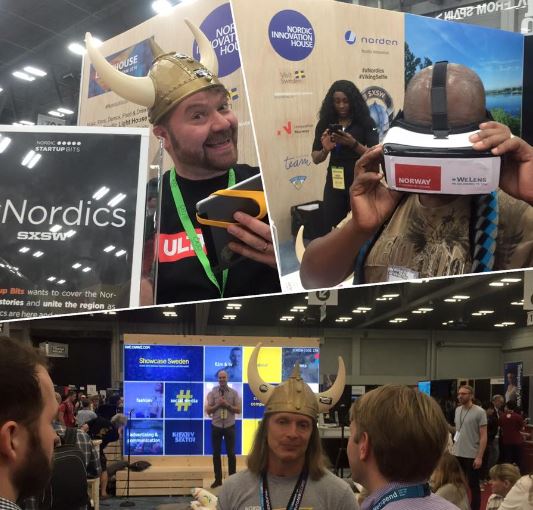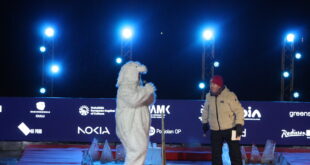This year’s South by Southwest (SXSW) Festival is now in full swing. The entire world has gathered for the massive event, which includes film and music festivals, and a technology conference where the latest trends and innovations make their world premiers. But this year, like previous years, Denmark is practically invisible.
The SXSW Festival is one of the largest festivals in world, attracting people from all over the world. Thousands of musicians, filmmakers, artists, visionaries, influencers, and entrepreneurs make their way to the festival each year. It is a place to see and be seen – to be a part of the “it crowd”. SXSW has experienced massive growth since it first opened in Austin, Texas 30 years ago. The festival now sees well over 80,000 visitors. This year, the conference was opened by President Barack Obama – which should give a hint as to it’s importance.
Therefore, the festival is an especially attractive place to have a showcase – especially if you are a small startup with big dreams. Or a small country with great ideas. But this year, once again, Denmark is barely a blip on the radar.
A Nordic delegation, the Nordic Light House, has been assembled as an umbrella showcase for all of the Nordic countries who are participating in the festival this year. Although there is a Danish flag on it’s site, the turnout is poor – there are no Danish startups and entrepreneurs. Lego and the Danish Design Center are the only Danish companies that seem to be represented.
Additionally, initiatives such as TrySwedish, Team Finland the Oslo Lounge are having great success hyping their respective countries and their startup, music, and film industries. Alongside booths, tradeshows, showcases, and parties, other Nordic countries are finding creative ways to promote themselves. For example, TrySwedish has one of the most popular food trucks at the festival, serving Swedish street food. Norway has gone the furthest – the city of Oslo even has a partnership with the city of Austin, and the runaway success of Norwegian startup Kahoot!, which did a stint at Austin’s Capital Factory accelerator, is one example of how fruitful this partnership has been.
Where is Denmark?
But why is Denmark not represented? The interest is certainly out there. Founder’s House in Copenhagen, one of the top co-working spaces in Europe, has expressed interest in being at SXSW. On Twitter, the tech and startup world in Denmark was tweeting about Texas for several weeks prior to the festival. But international conferences are an expensive pleasure, and there is not enough public and private support for Danish representation at the festival.
Nicholas Hellmann, chief consultant at the Danish Business Authority, says:
“Here in the Business Authority, we primarily have a national perspective. We seek to strengthen the ecosystem in Denmark, and there is simply no money in the budget to allocate funds to individuals who want to travel the world to learn or expose themselves.”
From 2016 onwards, the financial basis for support to entrepreneurship has been more limited financially, he explains, and he is not sure that conferences such as SXSW are the best use of time and money, especially as an amateur business. is where it’s smartest to put his money and his time as an amateur business.
“Conferences like SLUSH , Web Summit, and SXSW are obviously interesting for the international community and business angels. They can meet and see the latest trends. But as an entrepreneur should probably be at home and develop its business rather than running around to all sorts of conferences,” he says.
This also applies to the Danish Business Authority’s own participation in major conferences.
“Just show up and waving the flag is a little erratic. I do not question, that the other Nordic countries have a purpose for their official participation at this year’s SXSW, but if we are there just to be there, then that’s a no.”
The Business Authority is sometimes informally at various regional and European conferences such as Dublin’s Web Summit, but not at SXSW. Nicolai Hellmann says that in the future the Business Authority will hoist the flag at a future conference if there is a particular purpose. For example, in 2014, they went to Web Summit to promote the Market Maturation Fund.
“We will prioritize with the money and the time we have,” he says.
Bad timing for SXSW
Last year, Christian Vinther, Innovation Adviser at SCALEit, went to the SXSW Festival, but this year the economy got in the way.
“It’s a matter of priorities and timing. This year we went to the LAUNCH Festival because there was exactly the same focus at that event as the companies we worked with at SCALEit this year, and it was held in San Franciso” he says, continuing:
“It is not because we do not want to go to South by Southwest. There was just another conference that happened to fit SCALEit’s focus 100%. ”
Christian is also positive that there will be many more opportunities in the future for Denmark to showcase, and adds that there are a number of private initiatives dedicated to industry groups for conferences.
“Funds can be devoted to a group within the same industry, so if they see an opportunity to go out and promote Danish companies, it may be possible to get funding.”
Joining Nordic cooperation
Denmark’s showing can be greatly strengthened by taking a more active part in pan-Nordic cooperations. “Otherwise, it is easy to drown as a small country in the United States,” says Christian Vinther.
From where he works in Silicon Valley, Nordic entities often work together to encourage people to get out to events.
“It is an important part of development for a startup to get out of their comfort zone and join the action,” he says.
Companies must take the reins
Søren Friis Larsen, marketing director at the Danish Chamber of Commerce, believes companies could benefit from working together more. It is a lot of resources for small businesses to use, in terms of time and money. Therefore, he believes it is better to try to work together and create a common money pool for international conferences.
“It is not that we are against going to conferences like SXSW, but the available funds can be used more wisely,” he says.
But it is not only money that prevents people from going to international conferences. Rather, Denmark’s nonexistent presence reveals the need for better framework conditions. This view is shared by Alexander Ulrich, a consultant at Danish Industry.
“The government has launched something called the Denmark Bridge . Specifically, it is an initativee to support Danish entrepreneurs in relation to foreign skills and competences. It would be natural to look at whether certain types of conferences should be included,” he says.
Because when Denmark does not participate on an equal footing with other Nordic countries, it means the country potentially misses out on big opportunities.
 Nordic Startup News Early Stage Startup News From The Nordics
Nordic Startup News Early Stage Startup News From The Nordics


